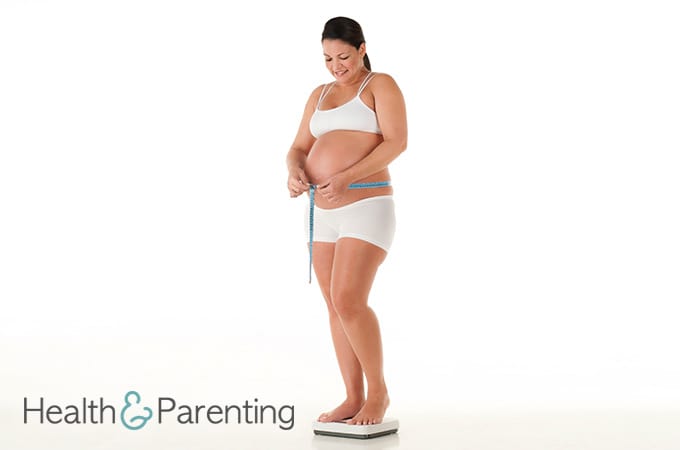The reality is that not every pregnant woman looks like Kate Middleton prior to, or even one month after pregnancy. In fact, according to the American Congress of Obstetrics and Gynecology (ACOG), around 61% of all pregnant women are overweight at the onset of pregnancy. What does this mean? Are there more risks for overweight women than there are for their average or underweight counterparts?
According to the US Centers for Disease Control and Prevention (CDC), a woman is overweight if her BMI is above 25. New research also suggests that a woman is overweight (even her actual scale weight is appropriate) if her waist measures more than 36 inches. Of course, we all know that ethnicity, genetics and a bunch of other things play a part in your weight. During pregnancy, there is quite simply a lot of emphasis placed on your weight and many practitioners will encourage already overweight women to not gain in excess during pregnancy.
Health wise, the risks of gestational diabetes and preeclampsia are higher if you are overweight. Even so, experts agree that with a careful diet and routine management and prenatal visits, these two diseases can be avoided and controlled during pregnancy. More important is your personal health history of diseases such as high blood pressure – that may be made worse by pregnancy.
According to author Van der Ziel, coauthor of Big, Beautiful, and Pregnant: Expert Advice and Comforting Wisdom for the Expecting Plus-Size Woman, “You can be overweight and have a fit pregnancy. Any obese pregnant woman can modify her risks by eating well, exercising, and adhering to weight-gain guidelines.” And, even more important is that your pre-pregnancy weight, if managed well during pregnancy can be non-issue. The presumption that a woman will not have a healthy pregnancy just because a woman is plus size and pregnant is simply NOT true.
Certainly, pregnancy is not the time to diet or minimize your caloric intake. Instead, it is important for ALL pregnant women – not just plus sized ones – to eat for health, choosing foods that are rich in vitamins and minerals rather than in calories because this is what your growing baby will need to be healthy. Additionally, make sure that you have a practitioner who is both understanding and non-judgmental about your weight, as this is supposed to be a happy time in your life.
Written By Stef, Mom of 4 @Momspirational
This information is not intended to replace the advice of a trained medical doctor. Health & Parenting Ltd disclaims any liability for the decisions you make based on this information, which is provided to you on a general information basis only and not as a substitute for personalized medical advice. All contents copyright © Health & Parenting Ltd 2017. All rights reserved.










